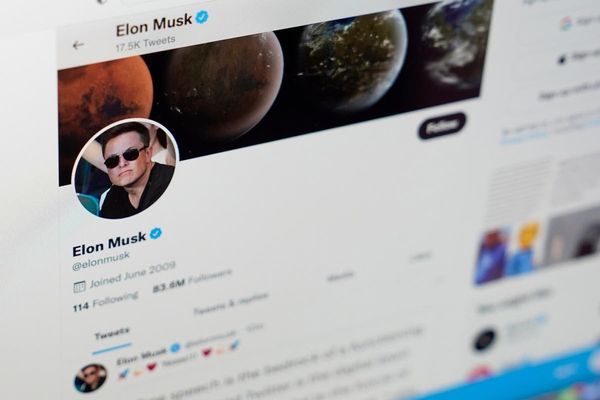
Speaking a few hours ago about Twitter purchaser Elon Musk, Twitter co-founder Jack Dorsey declared: “I trust his mission to extend the light of consciousness.” Bless. This feels like the first flashback scene we see in a dystopian drama after the words “SIX MONTHS EARLIER …” Quite where we’ll be in six months’ time as far as Twitter is concerned remains tantalisingly unclear, but it seems difficult to imagine it will be either a more or less pleasant space. It’s a social media platform. I’m not sure what further evidence humanity needs before we cotton on to the idea that such a thing might be an intrinsically toxic concept. Of course, there will always be some people who think it just hasn’t been done right yet. Like communism, or a British version of The Daily Show.
Anyway, if Musk’s takeover goes through, he’ll assume control of a platform where the people on the right are incredibly angry about free speech, and those on the left are incredibly angry about hate speech. Which is to say: they have so much in common. As the tech visionary Jaron Lanier has long been excellent at pointing out, the best way to keep people on platforms is to make them angry. So the platforms are designed to make them angry. You might consider the anger worth it for your version of advertising (I myself will post this column on Twitter), but even then it is a weirdly grim cost of doing business that just conceivably ought to be weighed far more carefully than it is.
Unlike the UK, Musk manufactures other things besides anger, but Twitter is the platform where, in a single calendar year, his posts led to multiple lawsuits, a fall in his stock price, and a Securities and Exchange Commission settlement that resulted in his chairmanship of Tesla being forcibly ended. Yet in a move that will feel familiar to a lot of Twitter users, he has not logged off, but leaned in further. When I was a child, there was a guy called Victor Kiam who owned Remington, and he would personally feature in the firm’s electric razor adverts, going: “I liked the shaver so much, I bought the company.” It would be nice to see Musk do something similar. “I liked calling innocent people paedos so much, I bought the company.”
Against this backdrop, the distress of Twitter users feels overplayed. Perhaps Elon embodies a kind of radical honesty and self-awareness not shared by other denizens of the site. People who seem to spend half their lives complaining about Twitter, on Twitter, seem stunned by the idea that a shitposter would ultimately buy it. Catch up! It doesn’t feel like a complete coincidence that all social media platforms are owned by men you’d run a mile from socially.
Musk is one of them – a brilliant, horrid, ridiculous and very occasionally endearing grotesque. A sort of intergalactically successful Dominic Cummings. And yet, despite Elon’s give-a-toss gift for making himself what Twitter users might call the “main character”, I can’t detest him entirely. If he pulls off the radical green energy transition embodied in Tesla, or even just one of his other wildly ambitious schemes, humans might have to accept some of the shit that’s gone with it. Accept it angrily, of course – how else, we’re on a social media platform! – but accept it nonetheless. A huge number of other people in public life behave appallingly and achieve absolutely nothing but harm.
But if endlessly righteous folk balk at the mere idea of necessary evils, why do they act like their own involvement in Twitter is one? It isn’t. It’s easy to focus on the high-profile people who are always on Twitter. But the sheer numbers of highly successful, highly creative and highly interesting people in the worlds of arts, business, science and beyond who AREN’T on it should tell a much more powerful story. They are part of all kinds of era-defining creative and commercial conversations and breakthroughs – and somehow manage to do it all without lavishing half the day scrolling past a bunch of other people having a row.
Lanier has cast detailed doubt on whether most Twitter advocacy is even meaningfully effective, despite sometimes appearing to be so. If you spend your day caught up in online fighting, it’s preferable to tell yourself you’re involved in consciousness-raising for your cause. An alternative view is that you are simply obsessively polarising your particular debate, to the point where compromise – boring, unfashionable, yet historically always necessary – becomes a more distant possibility.
My “unpopular opinion”, in one of Twitter’s tellingly popular phrases, is that those who spend a significant amount of time arguing on it work for the platform and not for their cause. The Musk takeover at least makes it easier to see whose pocket you’re putting money into as you delude yourself you’re winning arguments. I’m certainly not saying I follow this rule, but in general I think arguing on the internet is like playing real tennis: even if you win, you’re still a twat.
Marina Hyde is a Guardian columnist










